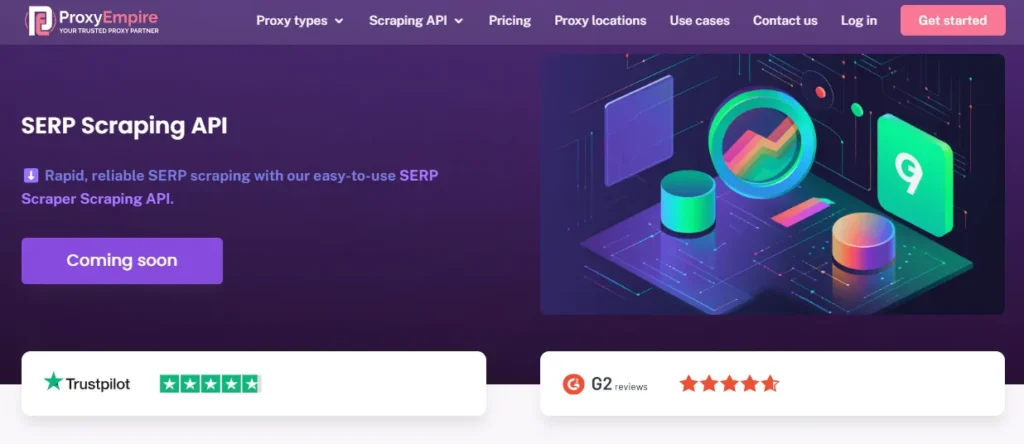
In the horse-and-buggy days of real estate analysis, professionals could only dream of the speed and anonymity that modern proxies provide. Today, they stand at the forefront of a quiet revolution, as industry players employ these digital chameleons to navigate the ever-shifting online landscape.
With proxies, analysts can quickly gather data that might otherwise take weeks to compile, offering insights that are both broad in scope and granular in detail. They’re not just scraping the surface; they’re digging deep into the bedrock of market intelligence.
This comprehensive approach to data acquisition is reshaping how real estate experts assess value, identify trends, and make predictions. At the heart of this transformation lies the question: how exactly do proxies confer such a significant competitive advantage, and what are the implications for those who haven’t yet embraced this method?
The answer may very well dictate who thrives and who falters in the property market of tomorrow.
Understanding Data Scraping
Data scraping is a process whereby automated tools extract vast amounts of information from websites, providing valuable data for analysis. In the context of real estate, this technique’s become indispensable. Agents and investors use it to pull property details such as location, price, and size from various online sources.
They’re not just collecting data; they’re gaining insights into market trends and pricing strategies that can give them a competitive edge. This method’s efficiency means they can monitor multiple listings across different websites simultaneously.
It’s a game-changer for the industry, offering a bird’s-eye view of the market that was once impossible to achieve with manual methods. Real estate professionals now rely on data scraping to stay ahead in a fast-moving market.

The Proxy Advantage
Harnessing the power of proxies can give real estate professionals a significant edge in market analysis and property data collection. Residential proxies offer a distinct set of advantages:
- They allow analysts to access a wealth of information while maintaining anonymity, reducing the risk of being blocked by websites.
- By bypassing geo-restrictions, they open up a global market for data collection, providing a more comprehensive view.
- Proxies enable high-volume data extraction without raising red flags, ensuring a steady flow of current market data.
- They contribute to a more accurate analysis by allowing professionals to tap into multiple data sources undetected, thus avoiding skewed results due to the overuse of a single source.
Real-Time Market Insights
While proxies provide a secure and anonymous way to gather property data, real-time market insights obtained through listing monitoring offer the immediate pulse of the real estate landscape. These insights empower investors and realtors to make informed decisions swiftly, capitalizing on market movements as they happen. The table below showcases the impact of real-time data on three key aspects of the market:
| Market Aspect | Before Real-Time Data | With Real-Time Data |
| Pricing Strategy | Based on historical data | Adjusted instantly to market changes |
| Property Demand | Predicted using past trends | Captured as it unfolds |
| Investment Timing | Estimated from periodic reports | Pinpointed with current trends |
Real-time insights are revolutionizing the way property markets are analyzed, providing a competitive edge to those who harness this power effectively.
Competitive Edge Strategies
Gaining a competitive edge in the real estate market demands strategic utilization of advanced tools and analytics to outperform rivals.
Successful professionals adopt a variety of strategies to stay ahead:
- They leverage real estate data scraping and listing monitoring to gather comprehensive market intelligence.
- Employing proxies, they ensure anonymity and access to a broader range of data without geographical or IP restrictions.
- These experts analyze trends meticulously, utilizing real-time insights to make informed decisions swiftly.
- They focus on optimizing pricing strategies by understanding the competitive landscape thoroughly.
Proxies and Market Trends
Building on their competitive edge strategies, real estate professionals increasingly rely on proxies to decipher market trends and capitalize on market opportunities. Proxies serve as a key tool in data scraping and listing monitoring, providing anonymity and bypassing geographic restrictions. This allows for a comprehensive analysis of the vast real estate landscape, ensuring professionals can gather and compare property details from multiple online sources seamlessly.
With proxies, real estate experts anonymously track competitor listings and adjust their pricing strategies, staying ahead of the game. They’re essential in maintaining a constant pulse on market movements, spotting emerging trends quickly, and identifying in-demand properties.
Consequently, proxies are transforming how market intelligence is gathered, delivering a competitive advantage to savvy real estate players.
Proxy Use Best Practices
To ensure the integrity and efficiency of data scraping and listing monitoring, it’s crucial to follow best practices when using proxies. Real estate professionals and analysts must adopt a strategic approach to utilize proxies without compromising data quality or legal standards. By adhering to these practices, they ensure the longevity and reliability of their scraping operations.
- Rotate proxies regularly to prevent detection and potential bans.
- Respect the target website’s terms of service and robots.txt files.
- Keep request rates reasonable to avoid server overload and ensure stable data retrieval.
- Use legitimate proxy services to maintain transparency and avoid legal pitfalls.
These steps help maintain a respectful and sustainable relationship with data sources, ensuring continued access to valuable real estate market information.
Legal and Ethical Implications
While adhering to best practices in proxy use can protect against technical pitfalls, it’s equally important to consider the legal and ethical implications of real estate data scraping.
The legality of scraping hinges on respecting a website’s robots.txt file and its terms of service. Ethically, it’s crucial to avoid using data for nefarious purposes or infringing on copyrights.
Proxies enable the anonymization of scraping activities, but they must be used responsibly. Overloading servers with requests can be legally contentious and ethically questionable.
Real estate professionals should seek proper authorization when required and maintain a reasonable request rate. By navigating these legal and ethical considerations, they ensure their data-gathering methods remain above board and sustainable.
Data Extraction Techniques
Building on the foundation of ethical scraping practices, effective data extraction techniques are crucial for gathering the needed information without infringing on the website’s functionality or user privacy. By using tools like the Selenium library and creating a FirefoxProfile, scrapers can mimic human browsing behavior, reducing the risk of detection and website harm.
They’ll extract vital data, such as property prices and features, from the HTML structure with precision. Utilizing BeautifulSoup, they navigate through the ‘item-info-container’ class to access specific details like ad IDs and addresses.
Once extracted, they’ll prepare the data for analysis by converting it into a structured format, such as a panda data frame, and perform cleaning operations to ensure the data’s quality for insightful real estate market analysis.
Data Conversion Essentials
Once data is extracted using BeautifulSoup, it must be converted into a pandas data frame to streamline analysis and manipulation. This essential step ensures that the raw data becomes a structured and versatile resource for real estate professionals. They can then glean insights, identify trends, and make data-driven decisions with ease.
- Simplify: Convert complex HTML data into a clean, tabular format.
- Organize: Categorize data into columns like price, location, and features.
- Format: Ensure consistency in data types, such as converting all prices to numbers.
- Clean: Remove any irrelevant or redundant information to focus on valuable data.
Cleaning and Formatting Data
After extracting real estate data, it’s crucial to clean and format it for accurate analysis. The process begins by using tools like BeautifulSoup to sift through the HTML and remove any irrelevant or redundant information. They then focus on presenting the data in a coherent structure, often opting for a pandas dataframe, which allows for more straightforward manipulation and analysis.
During cleaning, special attention goes to stripping currency symbols, standardizing date formats, and filling in or discarding missing values. Data types are also converted to ensure consistency—for instance, ensuring prices are represented as numbers rather than strings.
Percentile Analysis Methodology
To conduct percentile analysis, researchers typically merge several datasets into a single pandas dataframe and utilize the quantile function to determine key price thresholds. This approach identifies where most property prices fall, pinpointing outliers and trends. It’s a critical step in ethical real estate web scraping, ensuring that data-driven decisions reflect the market’s reality.
- Researchers assess the distribution of property prices using the quantile function.
- Percentile analysis helps identify typical, above-average, and below-average price points.
- This methodology aids in understanding market segments and pricing strategies.
- It allows for a fair comparison of property values across different regions or times.
Interactive Map Visualization
Building on the insights gained from percentile analysis, interactive map visualization brings property data to life by plotting it on a geographic interface. This dynamic display allows users to see patterns and trends across different locations at a glance. It’s particularly useful for real estate professionals and potential buyers who want to understand the market distribution and identify hotspots.

















